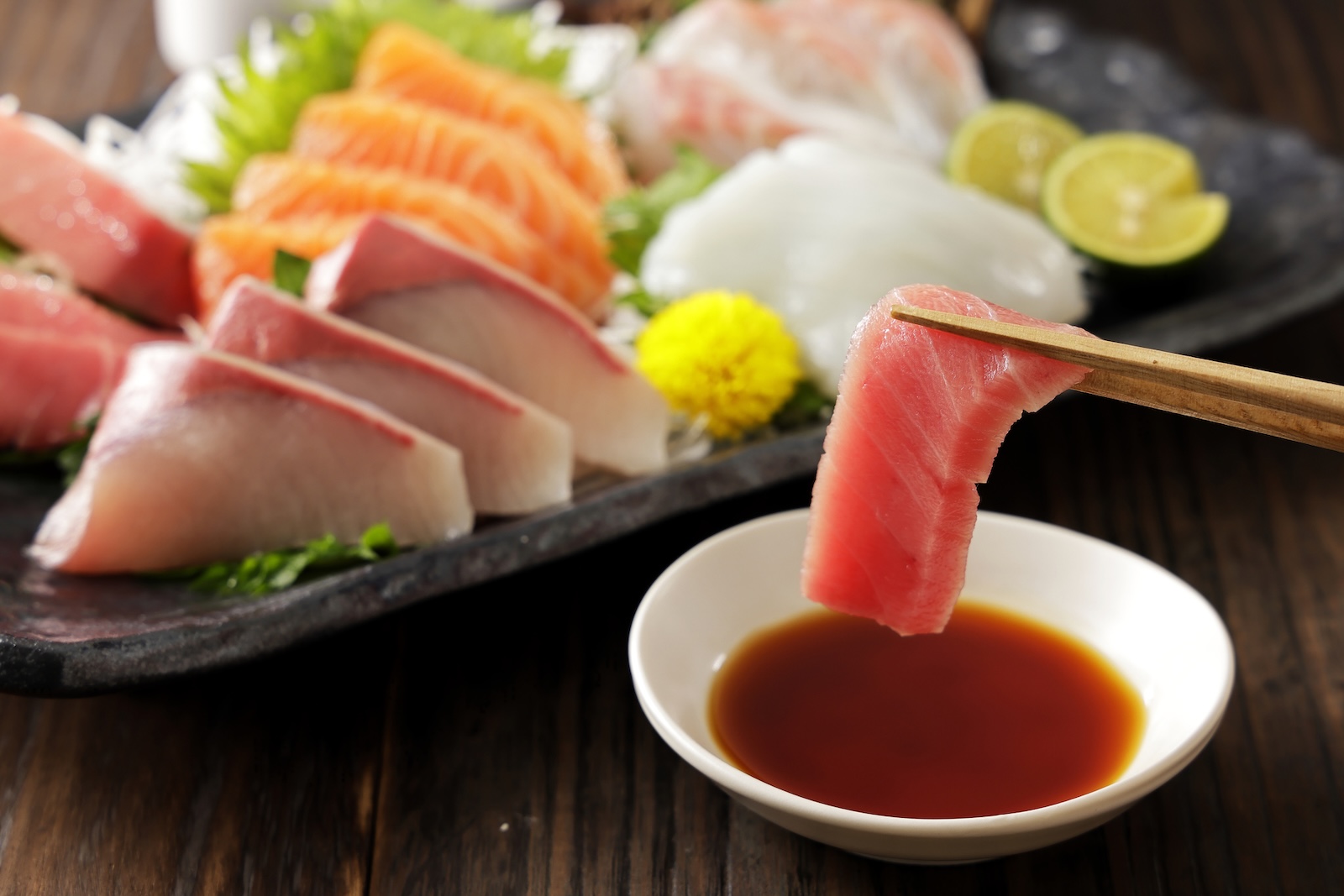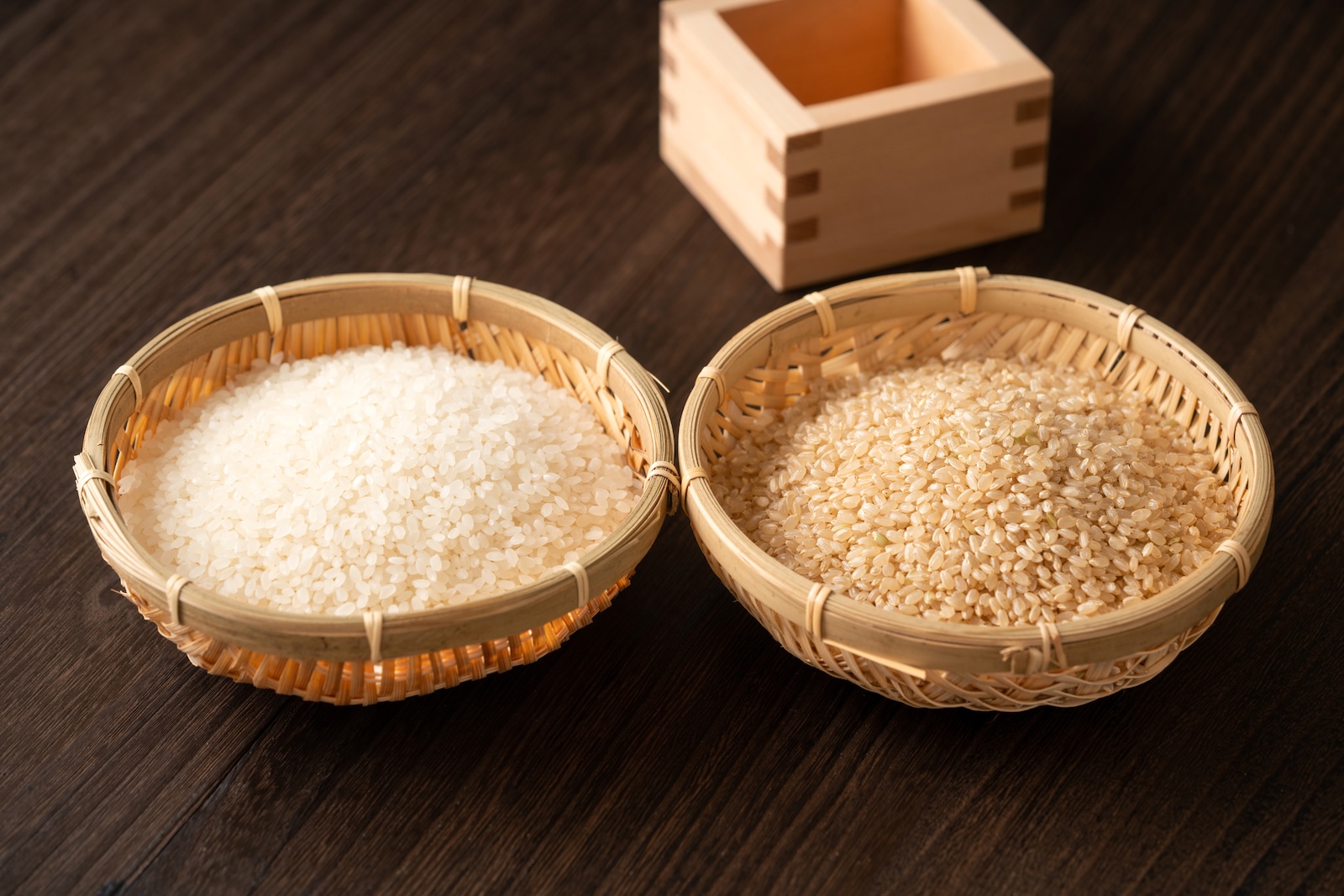Welcome to our new column, "Ask the Tokyo Dietitian," that provides expert insights on food and nutrition – tailored specifically for life in Japan.
Whether you're looking for tips on how to balance traditional Japanese foods with modern dietary needs, navigating local food labels or you want to learn more about the latest in nutrition science, registered dietitian Victoria Lindsay is here to help. Each month, she'll tackle common questions, dispel myths and provide practical advice to support your health and wellness journey.
Have a question? Ask away in the comment section below or by emailing us at tokyodietitian@japantoday.com and your question may be featured in an upcoming article.

Question: Hello! I’m visiting Japan and am curious to try the local cuisine, including sushi. However, I am not too keen on raw fish. Do you have any suggestions or things to try instead?
Tokyo Dietitian: Konnichiwa and welcome to Japan! While there are many delightful dishes to try while you’re here, I can understand both the curiosity and the hesitation surrounding sushi.
Most people who are uncertain about trying sushi fall into at least one of three main categories, which are:
- Those who think they may not like the texture of raw fish
- Those who aren’t sure they’ll like the taste of raw fish
- Those who aren’t too keen on seafood at all
Thankfully, there are options for those falling into each one of those groups. So if any of those categories apply to you, feel free to try these tips as you travel and eat your way through Japan.
If you find the slippery and sometimes slimy texture of raw fish off-putting, I’d suggest trying fully cooked seafood dishes instead.
Japan is renowned for its wide variety of fresh seafood. While sushi gets all the glory, some of my favorite Japanese foods involve fully cooked fish. Try nabe (Japanese-style hot pot stew) with vegetables and seafood, donburi (rice bowl) with fish on top, shrimp tempura (battered and deep-fried shrimp), adding seafood to your okonomiyaki (Japanese-style savory pancake) or grilled fish dishes using cod or salmon.
Another option is to consider aburi sushi, where the top of the fish or seafood used for the sushi has been lightly seared with a blowtorch. This slightly changes the taste and texture of the sushi and may be more palatable for those new to eating raw fish.
For those unsure about the taste of raw fish, I’ve found that fish containing a milder flavor that isn’t too “fishy” may be more desirable. Examples include cod, sea bream, tuna and certain types of seafood like scallops or crab.
Finally, for those unsure whether they like seafood at all, I’d suggest trying it in a mixed dish such as soup, stew or stir-fry where the flavor of the seafood is balanced with other flavors.
Another option would be eating a food that contains seaweed such as an onigiri (rice ball), which some say has a mild seafood or fish taste thanks to the seaweed without being too fishy.

Q: I live in Japan and like many other people who live here, I eat a lot of white rice. However, I have heard that it is important to eat more whole grains, so does this mean I should switch to brown rice instead? Is white rice bad for me?
TD: Ah yes, the white rice versus brown rice debate. While I wish there was an easy answer to which one is superior, the truth is more nuanced, so let’s unpack this.
Before I get into it, let me take a moment to acknowledge that rice — particularly white rice — is an important cultural food in Japan and many other places in the world. I feel very strongly that culturally meaningful foods have a place in a well-balanced diet. So if you love rice and it is important to you, I would never suggest you give it up.
What’s more, I can quickly assert that (generally speaking) white rice is not bad for you. Which is healthier? As with many things in the nutrition world, the answer is: it depends.
When it comes to white versus brown rice, there are some pros and some cons.
A major factor contributing to much of brown rice’s benefits lies in the fact that brown rice is rice in its whole form, meaning that it has not been refined and had the bran and germ removed like white rice. Because of this, brown rice contains more fiber, vitamins and minerals than white rice. Yet the amounts of these micronutrients in brown rice are admittedly small and may not be that impactful when considering one's diet in its entirety.
Another benefit of brown rice relates to its glycemic index score. The glycemic index is a scoring system that ranks foods based on how much they raise one’s blood sugar levels. White rice has a higher glycemic index score than brown rice, meaning that white rice may cause a faster increase and higher blood sugar level than an equal amount of brown rice.
Before you kick brown rice to the curb, though, consider this: because brown rice is not refined, that means it can contain more of the good stuff — but also the bad stuff.
A growing concern in the food industry is the amount of arsenic and heavy metals found in rice due to environmental pollution. Brown rice contains more arsenic and heavy metals than white rice. While it is still safe to eat, those who eat a large quantity of brown rice — or foods made with brown rice flour — may want to take note.
With this in mind (and excluding certain health conditions that may require a choice between one or the other), I encourage my patients to think about rice consumption a little differently. Instead of pitting one rice against the other, why not have both and increase the diversity of their diet if they are open to it? If they aren’t and strongly prefer white rice, that’s okay too!
Perhaps the better question to ask is not whether you should eat white rice, but whether you’re eating the amount that’s best for your nutrition needs. Because white rice is cheap and easy to make, portions can sometimes grow and end up crowding out other important foods, like fruit, vegetables or high protein foods. Consult a registered dietitian if you’re unsure of the best balance of rice or other foods for you.
Victoria Lindsay, MS RD, is a registered dietitian and nutrition consultant working at Tokyo Medical & Surgical Clinic and her Tokyo-based private practice. To get in touch, please visit: www.victorialindsayrd.com.
© Japan Today















10 Comments
Login to comment
David Brent
Judging by the groans and grunts I hear in the company toilet cubicles on a daily basis, I'm guessing it isn't all that good a source of fibre!
I much prefer genmai for its nutrional value and taste.
ebisen
White rice is about as healthy as white processed bread. It contains almost no nutrients, being all washed out or separated, and it is almost pure energy. Don't eat it if you have alternatives.
Zaphod
Absolutely. If you want to look like a sumo wrestler and help your insulin resistance along, just eat lots of the stuff. Everything in life "depends".
Zaphod
ebisen
I agree, but somehow I feel that soon we will hear about some nebulous "world-wide experts and respected institutions" who say this is a conspiracy theory.
virusrex
You having a personal bias against whatever the scientific consensus says is one thing, another completely different is to assume something you believe must be always against what has been demonstrated, as every source that provides mainly carbohydrates rice is in the same situation as corn or wheat, to be consumed in moderation and replaced with more nutritious sources when possible, you know as the last parragraph of the article says, the professional whose opinions are written is perfectly inside what the consensus of science says about the topic.
iknowall
Well put, and supported by the worldwide health community experts.
Jimizo
Alternative media podcast watchers are the go to people when it comes to nutrition.
They have a lot of YouTube hours on their CVs.
wallace
We generally eat 100% brown rice but sometimes enjoy white rice in sushi or Indian curry. Other grains, like wheat, are also 100% brown rice.
When we take our brown rice to the grinding kiosk the settings can be 70% brown. 50% brown. 100% white. and super white, whatever that is. 70% brown is good.
Zaphod
Jimizo
Can you tell us what "alternative media podcasts" are and how they are different from "non-alternative media podcasts"? And recommend who people should listen to? (Other than some non-identified "world-wide experts and respected institutions"? Thanks.
virusrex
The "world health community experts" do not say it should not be eaten, it says it should not be eaten in excess, the same as every other source of calories. Nothing specially bad about white rice compared with similar sources of energy like wheat or corn.